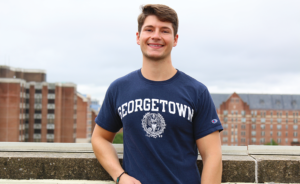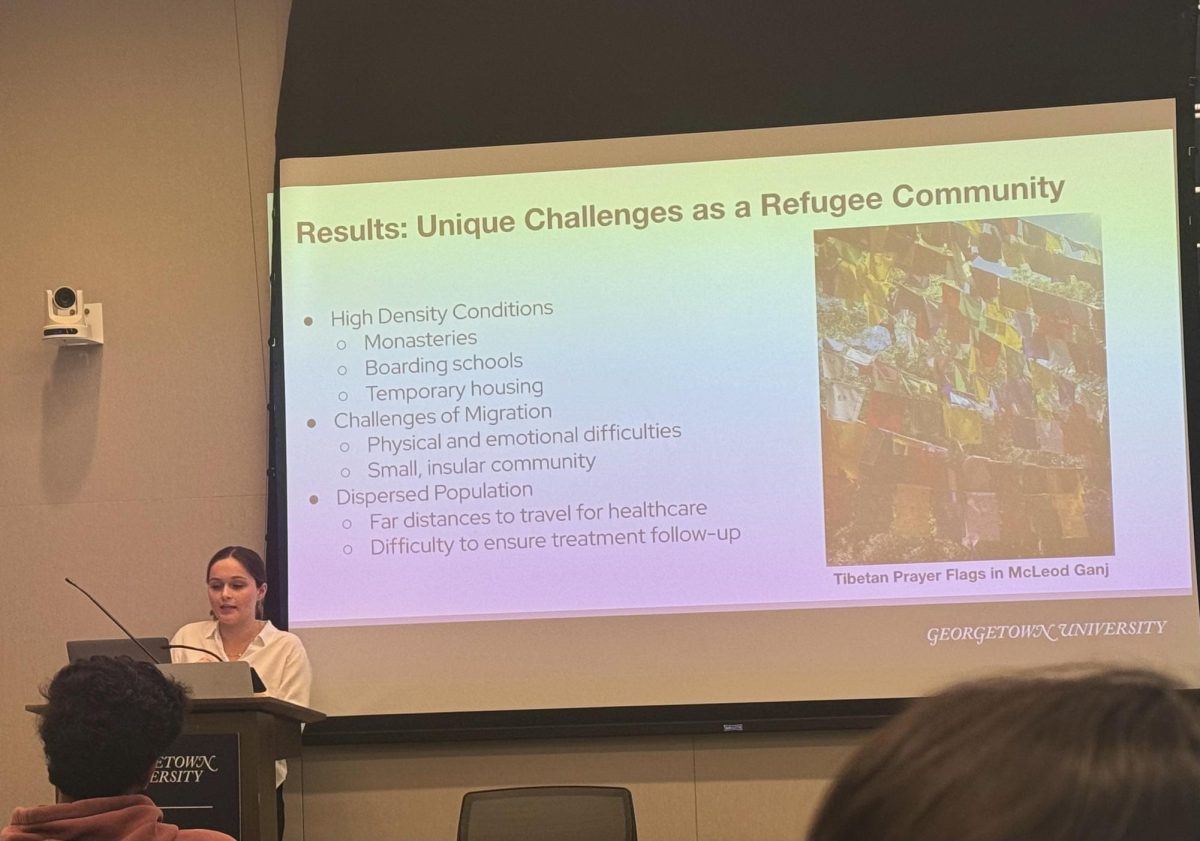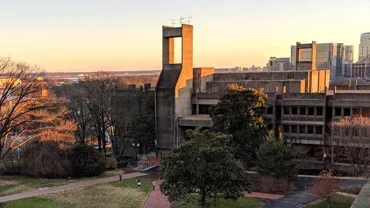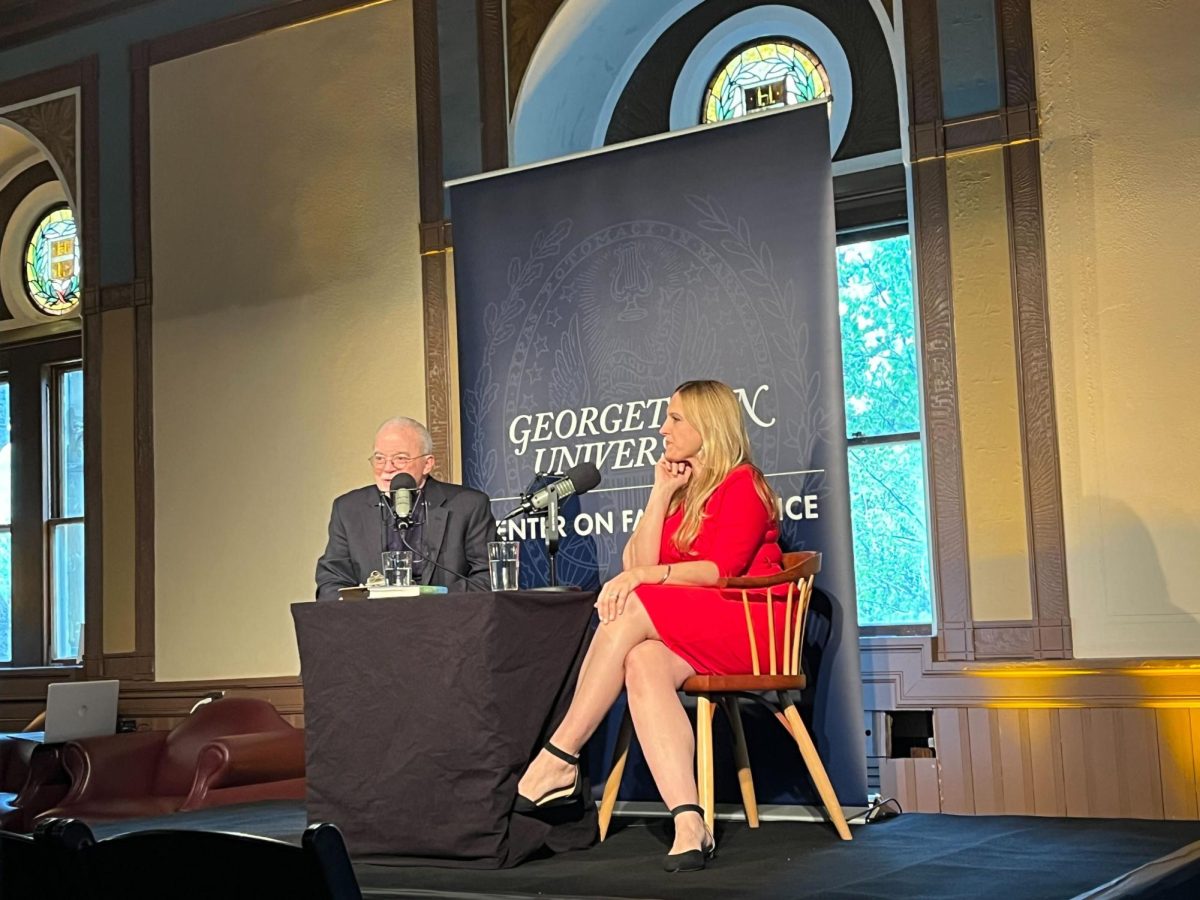 My time at Georgetown University has been one of discovery. I have discovered the meaning of friendship, the importance of community, the perks of city life, my passions and, most importantly, myself.
My time at Georgetown University has been one of discovery. I have discovered the meaning of friendship, the importance of community, the perks of city life, my passions and, most importantly, myself.
My choice to attend Georgetown was an unlikely and difficult one, as a first generation, low-income student. However, as I reflect on my time on the Hilltop, I could not have made a better choice. Even in the face of these obstacles, I was able to find a home on the Hilltop through different communities, and I discovered opportunities to support my changing academic interests.
My background is one of the less common ones at Georgetown. I come from a small fishing town in rural eastern North Carolina where the world is smaller and simpler. Life is focused on the weather, not the affairs of the federal government. Only 3.1% of Georgetown students come from the bottom 20% of the income ladder, according to The New York Times. This statistic is one that drives some low-income students away for fear of not being able to fit in with their wealthier peers, for being underprepared for classes and for simply not being able to afford the life that Georgetown culture expects. I was scared out of my mind about coming to a place that I was so out of touch with, which leads me to my first discovery: community.
My first week on the Hilltop was not spent doing New Student Orientation, but rather the Preparing to Excel pre-orientation program. PEP was a program run out of the Georgetown Scholars Program that focused on creating an environment for students much like myself — those whose families or schools may not have adequately prepared them for a place like Georgetown.
This program served as a behind-the-scenes look at Georgetown with the support of upperclassmen mentors. These mentors passed along their wisdom to help fast-track the development of the tools necessary to excel at Georgetown for incoming students. It was during this week when I discovered that there is a supportive community of other students like myself. I also discovered a sense of belonging that helped ground me here when I faced failure or feelings of exclusion. Members of the Georgetown community accepted me because they believed I belonged here, and it was through PEP that I discovered this acceptance to be true.
Having never lived in a city or rarely even venturing into one, I was also skeptical of Washington, D.C. By choosing to attend Georgetown, I took a shot in the dark and moved into the heart of the de facto capital of the world. One of the reasons I chose Georgetown was because I wanted the unique opportunity to be connected to a system larger than myself and to get exposure to the federal government and the international community. During my time here, I made it my personal mission to escape Georgetown and explore D.C. every chance I had. I am so glad I did, because it was through these adventures that I discovered the immense opportunities that D.C. has for jobs, education, culture and self-sufficiency.
College has so many important components, and the most important, at least from my perspective, is academics. I entered college as a pre-med biology major with the goal of becoming an orthopedic surgeon one day. I quickly dropped those aspirations and instead pivoted toward research, which turned out to be the best decision of my time at Georgetown. Being surrounded by so many impressive scientists, I quickly discovered that it was possible to “be successful” without becoming a medical doctor, and that there exist many subsections of biology that I found interesting that I previously did not have access to during my education in North Carolina.
As a part of my ventures into biological research, I began working in Dr. Shweta Bansal’s lab. This experience has been the defining component of my Georgetown experience. It wasn’t just a job; it has been a journey of academic and professional discovery. I have had the opportunity to craft my own cutting edge research on defining an epidemiological geography of the United States for influenza. Without distinct faculty like Bansal, I never would have discovered my passions and my desire to work at the intersection of infectious disease epidemiology, computer science and national security in the future.
If I have learned anything, it is to not let your past identify define your future. Do something that makes you uncomfortable and afraid, just like I did in choosing to come to Georgetown, because throughout the discomfort, you will grow and discover who you are.
Grant Rosensteel is a senior in the College.



















